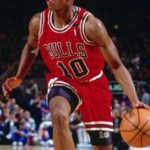Kawhi Leonard opened up about the controversial period during his time with the San Antonio Spurs, addressing the widespread rumors that he was faking an injury or lacked the desire to play. In a candid admission, the two-time NBA Finals MVP revealed how the accusations of quitting on the team deeply affected him. Leonard’s comments shed new light on a chapter that has long been the subject of speculation among fans and analysts alike, offering a personal perspective on one of the most debated moments in recent NBA history.
Kawhi Leonard Addresses Misconceptions Surrounding His Injury During Spurs Tenure
Kawhi Leonard broke his silence on the long-standing rumors about his injury struggles during his time with the San Antonio Spurs. The two-time NBA Finals MVP expressed how deeply personal and painful it was to be misunderstood by fans and analysts alike. “A lot of people thought I was faking the injury or didn’t want to play,” Leonard explained, emphasizing the frustration of having his integrity questioned while battling through an intense recovery process. The small forward also highlighted the physical toll the injury took on him, clarifying that his decisions were made with the team’s long-term success in mind rather than personal convenience.
Leonard’s remarks shed light on the misconceptions that clouded his Spurs tenure. He outlined several key points that often went unacknowledged:
- Complexity of the injury: Not just a simple ailment, but a condition that required meticulous management.
- Team-first mentality: His focus was always on returning healthy to contribute effectively, not avoiding play.
- Media misinterpretation: How incomplete information fueled false narratives about his commitment.
| Aspect | Kawhi’s Perspective |
|---|---|
| Injury Nature | Chronic and complex, not easily visible |
| Public Perception | Often seen as avoidance or lack of effort |
| Actual Impact | Required careful rehab, sidelined temporarily |
| Team Impact | Prioritized long-term team success over quick returns |
Impact of False Accusations on Leonard’s Mental Health and Professional Reputation
The persistent rumors suggesting Kawhi Leonard was malingering or intentionally avoiding play during his tenure with the San Antonio Spurs inflicted a profound toll on both his mental health and public image. Leonard openly expressed how the false narratives led many fans and critics to doubt his commitment, triggering feelings of isolation and frustration. Such misconceptions not only undermined his physical struggles but also questioned his integrity, painting a distorted picture of a player renowned for professionalism and resilience.
The repercussions of these claims extended beyond personal anguish, reverberating within his professional standing. Despite his accolades and undeniable contributions on the court, Leonard found himself battling skepticism that threatened to overshadow his legacy. The psychological stress from enduring unfair judgment made it harder for him to focus purely on recovery and performance.
- Emotional Strain: Heightened anxiety and distrust fueled by public misconceptions.
- Reputation Damage: Questioned commitment and professionalism affecting fan and media perception.
- Career Impact: Increased pressure to constantly validate his dedication amid rumors.
| Aspect | Details |
|---|---|
| Mental Health | Increased emotional burden due to persistent unfair allegations. |
| Public Perception | Misjudged as uncommitted despite evidence of dedication. |
| Professional Pressure | Forced to prove loyalty and effort repeatedly under scrutiny. |
Strategies for Athletes to Combat Injury Stigma and Maintain Public Trust
In the high-stakes world of professional sports, athletes frequently face skepticism about their injuries, often leading to damaging stigma. To effectively counteract this, players must embrace transparency by openly communicating updates about their health status. Utilizing social media platforms for candid insights and collaborating closely with medical teams to release clear, factual reports can foster trust with fans and media alike. Additionally, maintaining consistent professionalism during rehabilitation and avoiding speculation about their own conditions helps to reinforce credibility.
Building and sustaining public trust requires a proactive approach. Athletes can implement strategies such as:
- Regular Media Engagement: Hosting Q&A sessions or press briefings to address concerns directly.
- Documenting Rehabilitation: Sharing progress through controlled, authentic content builds empathy and understanding.
- Advocating Injury Awareness: Partnering with organizations to educate the public about sports injuries.
| Strategy | Key Benefit | Example |
|---|---|---|
| Transparent Communication | Reduces rumors and misinformation | Kawhi Leonard’s public injury updates |
| Engagement with Media | Builds direct fan relationships | Regular press briefings during recovery |
| Injury Awareness Campaigns | Educates public, promoting empathy | Partnering with health organizations |
Insights and Conclusions
Kawhi Leonard’s candid remarks about the criticism he faced during his time with the San Antonio Spurs shed light on the emotional toll that public perception can take on professional athletes. By addressing the rumors head-on, Leonard not only clarified his position but also highlighted the challenges players endure beyond the court. As the conversation around athlete health and transparency continues to evolve, Leonard’s experience serves as a reminder of the importance of empathy and understanding in sports narratives.














